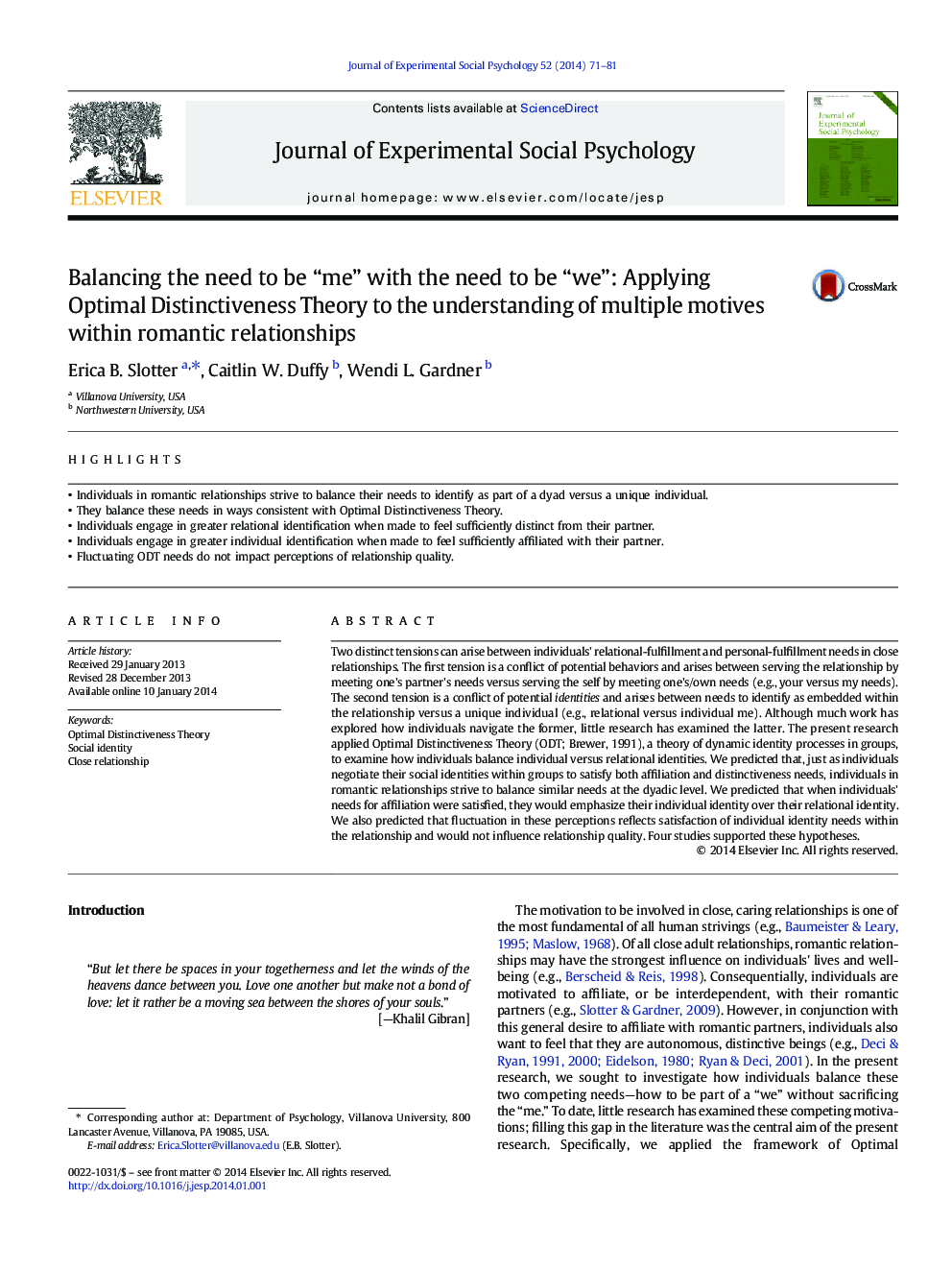| کد مقاله | کد نشریه | سال انتشار | مقاله انگلیسی | نسخه تمام متن |
|---|---|---|---|---|
| 947762 | 1475871 | 2014 | 11 صفحه PDF | دانلود رایگان |
• Individuals in romantic relationships strive to balance their needs to identify as part of a dyad versus a unique individual.
• They balance these needs in ways consistent with Optimal Distinctiveness Theory.
• Individuals engage in greater relational identification when made to feel sufficiently distinct from their partner.
• Individuals engage in greater individual identification when made to feel sufficiently affiliated with their partner.
• Fluctuating ODT needs do not impact perceptions of relationship quality.
Two distinct tensions can arise between individuals' relational-fulfillment and personal-fulfillment needs in close relationships. The first tension is a conflict of potential behaviors and arises between serving the relationship by meeting one's partner's needs versus serving the self by meeting one's/own needs (e.g., your versus my needs). The second tension is a conflict of potential identities and arises between needs to identify as embedded within the relationship versus a unique individual (e.g., relational versus individual me). Although much work has explored how individuals navigate the former, little research has examined the latter. The present research applied Optimal Distinctiveness Theory (ODT; Brewer, 1991), a theory of dynamic identity processes in groups, to examine how individuals balance individual versus relational identities. We predicted that, just as individuals negotiate their social identities within groups to satisfy both affiliation and distinctiveness needs, individuals in romantic relationships strive to balance similar needs at the dyadic level. We predicted that when individuals' needs for affiliation were satisfied, they would emphasize their individual identity over their relational identity. We also predicted that fluctuation in these perceptions reflects satisfaction of individual identity needs within the relationship and would not influence relationship quality. Four studies supported these hypotheses.
Journal: Journal of Experimental Social Psychology - Volume 52, May 2014, Pages 71–81
